A randomised controlled trial (NoMAD trial) showed micronutrients led to faster recovery from depression and anxiety compared with placebo. The RCT was followed by a 10 week open-label component and then a one year naturalistic review.
This 1-year follow-up of NoMAD explored the association between dominant treatment at 1-year follow-up with psychiatric outcomes.
Ninety-four (63 %) of the original 150 NoMAD participants completed 1-year follow-up. Primary outcomes included Generalised Anxiety Disorder-7 questionnaire (GAD-7), Patient Health Questionnaire-9 (PHQ-9), and Modified-Clinical Global Impression-Improvements (MCGI-I). Outcomes were explored based on dominant therapy at 1-year follow-up: Micronutrients (n = 20), Psychiatric Medications (n = 9), and No Treatment (n = 56). Nine participants could not be grouped due to mixed treatments at follow-up.
Regardless of dominant therapy, participants were functioning significantly better at 1-year compared to baseline. There was little change from end of 10 weeks of open-label micronutrient treatment, with the exception of depression scores, which were significantly lower (d = 0.4; p<.001). Most participants had either no or mild depression (78 %) and anxiety (85 %) scores at 1-year follow-up. Those who stayed on micronutrients were those who experienced better response at end of open-label compared with those who stopped or switched to medications. They also showed a greater reduction in health anxiety from end of open-label to 1-year follow-up compared with others. The main reason cited for stopping micronutrients was the cost. Limitations include a third of original sample lost to follow-up and uneven group sizes limit generalisability of results.
Participants, regardless of long-term supplementation, were functioning well at one year.
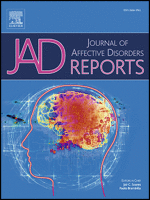
Coët A, Blampied FM, Rucklidge JJ. 1-year naturalistic follow-up of a Randomised Double-Blind, Placebo-Controlled Trial (“NoMAD”) Exploring the Effectiveness of Micronutrients in Improving Symptoms of Anxiety and Depression. Journal of Affective Disorders Reports. Volume 20, April 2025.
Objective: With dual focus on structured, objective quantification of parent observations of child's behavior and identifying behaviors most amenable to change, this report examines Parent Target Problems (PTP) as a secondary outcome in a randomized clinical trial (RCT) of children with attention-deficit/ hyperactivity disorder (ADHD) in which one primary outcome, Clinical Global Impression-Improvement, showed a significant advantage of multinutrients over placebo and the other, Likert-type parent ratings, showed significant improvement in both groups, without significant difference between them.
Method: In a multisite 8-week RCT of broad-spectrum micronutrients ("multinutrients"), parents of children ages 6-12 (N = 126, 73% male, 88% white) with ADHD and emotional dysregulation nominated their child's most concerning problem(s) at baseline and quantified them by frequency, duration, impairment, and consequences. At subsequent visits, parents re-quantified the problem(s). Blinded child psychiatrists independently reviewed the PTPs and rated change at two timepoints compared to baseline. PTPs were grouped into 9 categories. Mean ratings were compared between active and placebo groups and explored by category.
Results: By week 8, a significant separation favored multinutrients: 38% of the multinutrient group were "definitely improved" or better, compared to 25% of the placebo group, and ratings of "no change" or "worse" occurred in 35% with placebo versus 23% with multinutrients (p = 0.04). Inattention (72.2%) and emotional dysregulation (69.1%) were the most frequently reported PTP categories. Inattention and internalizing symptoms improved more with multinutrients than placebo (p = 0.01, d = 0.55; p = 0.03, d = 0.80, respectively). The multinutrient advantage was not significant for 7 other symptoms, including hyperactivity/impulsivity, aggression, autistic symptoms, or emotional dysregulation/irritable oppositionality.
Conclusions: This secondary analysis found that the multinutrients, compared to placebo, were associated with improvements in parental concerns overall, and in two domains specifically: inattention and internalizing symptoms (anxiety/depression), but not in seven domains: hyperactivity/impulsivity, aggression, autistic symptoms or physiological symptoms, peer relationships or emotional dysregulation/irritable oppositionality.
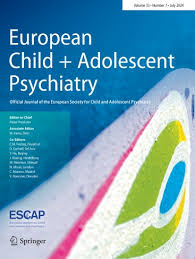
Problems most concerning to parents of children with ADHD and emotional dysregulation in a randomized controlled trial of multinutrients: MADDY secondary analysis
Tost G, Srikanth P, Bruton A, Hatsu IE, Leung BM, Ast HK, Eiterman LP, Robinette LM, Williams C, Gracious B, Eugene Arnold L, Johnstone JM. Eur Child Adolesc Psychiatry. 2024 May 31.
Background: Anxiety and depression are increasingly burdening society. We investigated whether micronutrients (vitamins and minerals), improve anxiety and depression symptoms in an adult community setting.
Methods: Participants (n = 150) describing functionally-impairing symptoms of anxiety/depression randomly received micronutrients or placebo for 10 weeks. Primary outcome measures were Patient Health Questionnaire-9 (PHQ-9), Generalised Anxiety Disorder Scale-7 (GAD-7), and Clinical Global Impression-Improvement scale (CGII). They were monitored online with regular phone contact with a clinical psychologist.
Results: Linear mixed-effects modelling showed significant improvements in both groups, with the micronutrient group improving significantly more quickly on both the PHQ-9 (t = -2.17, p = 0.03) and the GAD-7 (t = -2.23, p = 0.03). Subsequent models with covariates showed that participant characteristics moderated time-by-group interactions; micronutrients provided fastest improvement relative to placebo for younger participants, those from lower socioeconomic groups and those who had previously tried psychiatric medication. On the CGII, there were no group differences at end-point ((F1,148) = 1.36, p = 0.25, d = 0.19, 95 % CI [-0.13 to 0.51]), with 49 % of the micronutrient and 44 % of the placebo groups being identified responders. Participants on micronutrients had significantly increased bowel motions compared with placebo. There was no increased suicidal ideation, no serious adverse events and the blind was adequately maintained. Drop out was low at 8.7 %.
Limitations: The improvement under placebo and lack of formal diagnoses limit generalizability.
Conclusions: Despite limited clinician contact, all participants improved significantly, though improvements were faster with micronutrients. Participants in some subgroups demonstrated a lower response to placebo, identifying where micronutrients may offer greatest potential as an intervention.
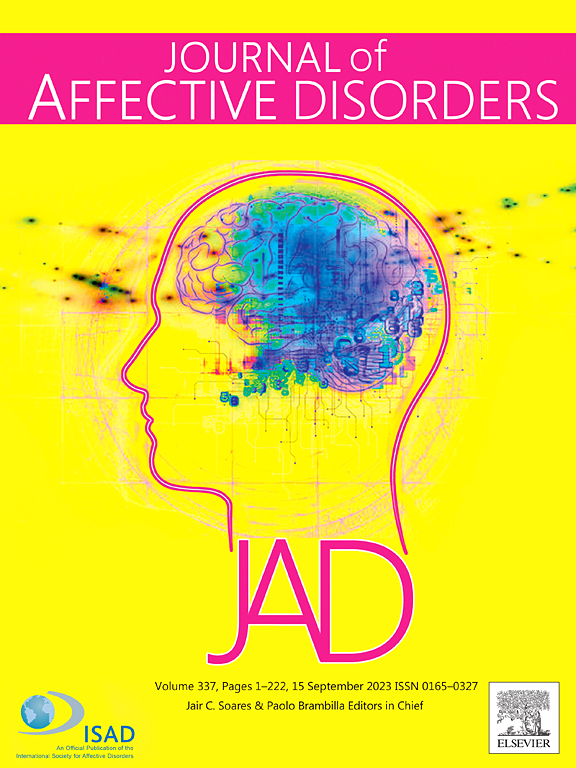
Efficacy and safety of a vitamin-mineral intervention for symptoms of anxiety and depression in adults: A randomised placebo-controlled trial “NoMAD”
Blampied FM, Tylianakis JM, Bell C, Gilbert C, Rucklidge JJ. Efficacy and safety of a vitamin-mineral intervention for symptoms of anxiety and depression in adults: A randomised placebo-controlled trial "NoMAD". J Affect Disord. 2023 May 31:S0165-0327(23)00718-8.
ABSTRACT
Objective: The Pediatric Adverse Event Rating Scale (PAERS) measured adverse events of children
aged 6–12 years with ADHD and emotional dysregulation in the Micronutrients for ADHD in Youth
(MADDY) study, an eight week multi-site randomized clinical trial of a broad-spectrum multinutrient
treatment. Treatment sensitivity of the PAERS was assessed by calculating the treatment difference in
change of the item scores from baseline to end of the RCT.
Methods: Principal component analysis retained 14 “adverse events” (out of 43 in the PAERS) that
reflected ADHD symptoms and emotional dysregulation and was used to group the variables of interest.
A combined score ranging from 0 to 5 was created based on symptom presence, functional
impairment, and severity. Mean score change was calculated from baseline to week 8 by treatment
(multinutrient vs placebo) with intention-to-treat and per-protocol samples. The study has been registered
on clinicaltrials.gov as Micronutrients for ADHD in Youth (MADDY) Study, trial registration #
NCT03252522 (https://clinicaltrials.gov/ct2/show/NCT03252522).
Results: The 126 children in the ITT sample had a mean age of 9.8 (SD = 1.7), with majority (73%)
male, and 72% diagnosed with ADHD prior to the study screening. Baseline presence of PAERS symptoms
was similar between treatment groups: the highest proportion was ADHD symptoms, followed
by Irritable symptoms. The micronutrient group showed a greater decrease (improvement) in the
mean anxiety combined score than the placebo group with a between-group difference in change of
- 0.36 (95% CI: - 0.67, - 0.04; p¼.03) with ITT data and - 0.48 (95% CI: - 0.81, - 0.15; p = .005) with
per-protocol (n = 93) data.
Conclusion: The multinutrient supplement did not result in more adverse events than placebo, suggesting
it is a safe intervention. In addition to assessing actual adverse events, the PAERS may be a
useful adjunct outcome measure for ADHD behaviors.
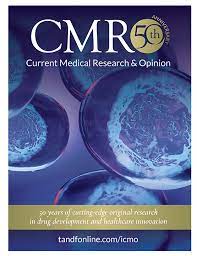
Paediatric adverse event rating scale: a measure of safety or efficacy? Novel analysis from the MADDY study
Brenda M. Y. Leung, Priya Srikanth, Barbara Gracious, Irene E. Hatsu, Gabriella Tost, Valerie Conrad, Jeanette M. Johnstone & L. Eugene Arnold (2022) Paediatric adverse event rating scale: a measure of safety or efficacy? Novel analysis from the MADDY study, Current Medical Research and Opinion, 2022 Sep;38:9, 1595-1602.
The 'Micronutrient Formula' rated by this international taskforce was Daily Essential Nutrients, and was given an 'Evidence Grade' of 'A', due to a statistically significant meta-analysis (k = 2, n = 173) with statistically significant RCTs in adult and child samples. They gave the following supporting statements for Daily Essential Nutrients:
Meta-analytic level results have shown supportive evidence for efficacy in ADHD as a monotherapy
More replicated evidence required (in both adults and children)
This particular micronutrient formula’s efficacy cannot necessarily be extended to other multi-nutrient formulas
Dosing may need to be supervised (and titrated) via a health profession
Cost and compliance may be an issue due to a recommended dosage of 8–12 capsules per day
Acceptable safety data
Objectives: The therapeutic use of nutrient-based 'nutraceuticals' and plant-based 'phytoceuticals' for the treatment of mental disorders is common; however, despite recent research progress, there have not been any updated global clinical guidelines since 2015. To address this, the World Federation of Societies of Biological Psychiatry (WFSBP) and the Canadian Network for Mood and Anxiety Disorders (CANMAT) convened an international taskforce involving 31 leading academics and clinicians from 15 countries, between 2019 and 2021. These guidelines are aimed at providing a definitive evidence-informed approach to assist clinicians in making decisions around the use of such agents for major psychiatric disorders. We also provide detail on safety and tolerability, and clinical advice regarding prescription (e.g. indications, dosage), in addition to consideration for use in specialised populations.
Methods: The methodology was based on the WFSBP guidelines development process. Evidence was assessed based on the WFSBP grading of evidence (and was modified to focus on Grade A level evidence - meta-analysis or two or more RCTs - due to the breadth of data available across all nutraceuticals and phytoceuticals across major psychiatric disorders). The taskforce assessed both the 'level of evidence' (LoE) (i.e. meta-analyses or RCTs) and the assessment of the direction of the evidence, to determine whether the intervention was 'Recommended' (+++), 'Provisionally Recommended' (++), 'Weakly Recommended' (+), 'Not Currently Recommended' (+/-), or 'Not Recommended' (-) for a particular condition. Due to the number of clinical trials now available in the field, we firstly examined the data from our two meta-reviews of meta-analyses (nutraceuticals conducted in 2019, and phytoceuticals in 2020). We then performed a search of additional relevant RCTs and reported on both these data as the primary drivers supporting our clinical recommendations. Lower levels of evidence, including isolated RCTs, open label studies, case studies, preclinical research, and interventions with only traditional or anecdotal use, were not assessed.
Conclusions: Based on the current data and clinician input, a range of nutraceuticals and phytoceuticals were given either a supportive recommendation or a provisional recommendation across a range of various psychiatric disorders. However several had only a weak endorsement for potential use; for a few it was not possible to reach a clear recommendation direction, largely due to mixed study findings; while some other agents showed no obvious therapeutic benefit and were clearly not recommended for use. It is the intention of these guidelines to inform psychiatric/medical, and health professional practice globally.
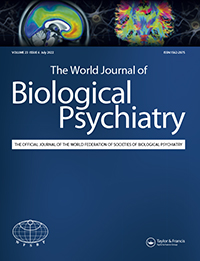
Clinician guidelines for the treatment of psychiatric disorders with nutraceuticals and phytoceuticals: The World Federation of Societies of Biological Psychiatry (WFSBP) and Canadian Network for Mood and Anxiety Treatments (CANMAT) Taskforce
Sarris J, Ravindran A, Yatham LN, Marx W, Rucklidge JJ, McIntyre RS, Akhondzadeh S, Benedetti F, Caneo C, Cramer H, Cribb L, de Manincor M, Dean O, Deslandes AC, Freeman MP, Gangadhar B, Harvey BH, Kasper S, Lake J, Lopresti A, Lu L, Metri NJ, Mischoulon D, Ng CH, Nishi D, Rahimi R, Seedat S, Sinclair J, Su KP, Zhang ZJ, Berk M. Clinician guidelines for the treatment of psychiatric disorders with nutraceuticals and phytoceuticals: The World Federation of Societies of Biological Psychiatry (WFSBP) and Canadian Network for Mood and Anxiety Treatments (CANMAT) Taskforce. World J Biol Psychiatry. 2022 Jul;23(6):424-455.
Abstract
A package of biopsychosocial services for young adults experiencing psychological distress was evaluated and compared to usual outpatient psychiatric care. Young adults (18–25) with moderate-to-severe symptoms of depression and/or anxiety (n = 26) were enrolled in a 13-week intervention consisting of nutritional coaching and multi-vitamin supplements, weekly educational and peer support groups, and a modest financial stipend to engage with physical or expressive activities. A comparison group (n = 13) continued with their usual medication-based outpatient care. Program participants reported significantly improved depression, anxiety, severity of distress, overall quality of life, and empowerment over 4 months, with progress maintained or further improved at 2-month follow-up. No evidence of change on any outcome was observed for comparison group participants. Although long-term impacts on mental health trajectories and reliance on psychotropic medications remain unknown, a holistic self-learning approach is a viable alternative to standard outpatient psychiatric care for young adults.
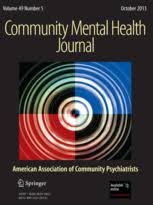
A Holistic Self‑learning Approach for Young Adult Depression and Anxiety Compared to Medication‑Based Treatment‑As‑Usual
Shannon Hughes, Mary Rondeau, Scott Shannon, Julia Sharp, Grace Ivins, JeongJin Lee, Ian Taylor, Brianna Bendixsen. Community Ment Health J. 2020 Jun 23.
Insomnia is a debilitating condition causing psychological distress and frequently comorbid with other mental health conditions. This study examined the effect of 8 weeks of treatment by broad spectrum micronutrients (Hardy Nutritionals® Optimal Balance, formerly known as Daily Self Defense™) on insomnia using a multiple-baseline-across-participants open-label trial design. Seventeen adults were randomized to 1-, 2-, or 3-week baseline periods (14 completed). Self-report measures were the Consensus Sleep Diary–Morning (CSD-M), the Pittsburgh Insomnia Rating Scale (PIRS), and the Depression, Anxiety, Stress Scale (DASS). Baselines were generally stable. Treatment completers reported reliable and clinically significant change in insomnia severity (PIRS), in depression, stress, and anxiety (DASS), and on at least two aspects of sleep measured by the CDS-M. All completers were treatment-compliant, and side effects were minimal. Nutritional supplementation is shown to be a novel, beneficial treatment for insomnia in adults. Follow-up research using placebo-controlled designs as well as comparisons to cognitive-behavioral and other treatments is recommended.
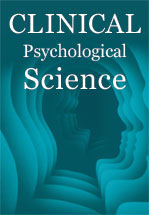
Effect of Micronutrients on Insomnia in Adults: A Multiple-Baseline Study
Joanna Lothian, Neville M. Blampied, Julia J. Rucklidge. Clinical Psychological Science. May 23, 2016.doi:10.1177/2167702616631740
After devastating flooding in southern Alberta in June 2013, we attempted to replicate a New Zealand randomised trial that showed that micronutrient (minerals, vitamins) consumption after the earthquakes of 2010-11 resulted in improved mental health. Residents of southern Alberta were invited to participate in a study on the potential benefit of nutrient supplements following a natural disaster. Fifty-six adults aged 23-66 were randomised to receive a single nutrient (vitamin D, n=17), a few-nutrients formula (B-Complex, n=21), or a broad-spectrum mineral/vitamin formula† (BSMV, n=18). Self-reported changes in depression, anxiety and stress were monitored for six weeks. Although all groups showed substantial decreases on all measures, those consuming the B-Complex and the BSMV formulas showed significantly greater improvement in stress and anxiety compared with those consuming the single nutrient, with large effect sizes (Cohen's d range 0.76-1.08). There were no group differences between those consuming the B-Complex and BSMV. The use of nutrient formulas with multiple minerals and/or vitamins to minimise stress associated with natural disasters is now supported by three studies. Further research should be carried out to evaluate the potential population benefit that might accrue if such formulas were distributed as a post-disaster public health measure.
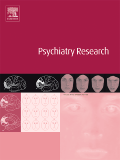
A randomised trial of nutrient supplements to minimise psychological stress after a natural disaster
Kaplan BJ, Rucklidge JJ, Romijn AR, Dolph M. Psychiatry Res. 2015 Aug 30;228(3):373-9.
A micronutrient formulation co-developed† by Hardy Nutritionals® founder David Hardy, showed “statistically robust improvements” in the first-ever double-blind study to test the effectiveness and safety of a multivitamin-mineral supplement in adults with ADHD. Researchers from the University of Canterbury and the University of Otago, New Zealand, randomized 80 adults diagnosed with ADHD to take either the micronutrient formulation or identical-looking placebo pills for 8 weeks. Most of the study participants had at least one psychiatric diagnosis in addition to ADHD. Additional diagnoses included multiple anxiety disorders, major depressive disorder, dysthymia, bipolar disorder, reading disability, and alcohol/substance misuse or dependence. The nutrient group reported more than double the improvement in attention, hyperactivity, and impulsivity symptoms, compared with the placebo group. Clinical psychologists rated more than twice as many people in the nutrient group ‘very much’ or ‘much’ improved in overall symptoms. They also rated moderate and severely depressed participants in the nutrient group as having nearly double the improvement in depression symptoms. Researchers found that the micronutrients were completely safe; there were no differences in side effects between the two groups.
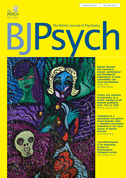
Vitamin–mineral treatment of attention-deficit hyperactivity disorder in adults: double-blind randomised placebo-controlled trial.
Rucklidge JJ, Frampton CMA, Gorman B, Boggis A. The British Journal of Psychiatry. 2014 Feb;204(2): doi: 10.1192/bjp.bp.113.132126 [Epub ahead of print]
Scientists observed while conducting previous studies that many study participants whose psychiatric symptoms were treated successfully with a micronutrient formulation co-developed† by Hardy Nutritionals® founder David Hardy tended to reduce or eliminate use of alcohol, cigarettes and cannabis on their own. This study details one case in which on-off micronutrient use resulted in off-on cigarette and cannabis smoking as well as off-on psychiatric symptoms. Micronutrients provide the necessary precursors and cofactors for adequate neurotransmitter production and regulation. In this way, micronutrients assist with mood regulation, help reduce anxiety, and directly affect brain reward circuitry, all of which can help individuals to successfully stop drug use.
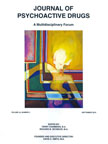
Use of micronutrients attenuates cannabis and nicotine abuse as evidenced from a reversal design: a case study.
Harrison R, Rucklidge JJ, Blampied N. Journal of Psychoactive Drugs. 2013 Jun;45(2):168-178.
An 11-year-old boy with a 3-year history of mental illness and psychiatric medication treatment was transitioned to a micronutrient formulation co-developed† by Hardy Nutritionals® founder David Hardy. The boy was diagnosed with multiple psychiatric disorders, including obsessive-compulsive disorder, generalized anxiety disorder, social anxiety disorder, and psychosis—not otherwise specified. The boy’s anxiety, obsessive-compulsive, and psychotic symptoms decreased significantly when he took the vitamin-mineral formulation, and his progress was maintained through a 4-year follow-up. A cost comparison revealed that the boy’s micronutrient treatment cost less than 1% of his former inpatient mental health care.

Efficacy and cost of micronutrient treatment of childhood psychosis.
Rodway M, Vance A, Watters A, Lee H, Bos E, Kaplan BJ. BMJ Case Reports. 2012 Nov 9;2012.
Following a 6.3-magnitude earthquake in Christchurch, New Zealand, researchers randomized 91 earthquake survivors to take one of two vitamin-mineral formulas (Berocca Performance or a micronutrient formulation co-developed† by Hardy Nutritionals® founder David Hardy. Then they measured symptoms of situation-induced depression, anxiety, and stress in these individuals, as well as 25 additional people who took no supplement (a control group). After 4 weeks, 20% of the control group, 43% of the Berocca Performance group, and 74% of the group taking the micronutrients showed significant improvement in depression, anxiety, and stress symptoms. Researchers concluded that this study supports micronutrients as an inexpensive and practical treatment for acute stress following a natural disaster, with a slight advantage to higher doses.
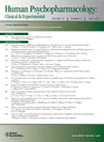
Shaken but unstirred? Effects of micronutrients on stress and trauma after an earthquake: RCT evidence comparing formulas and doses.
Rucklidge JJ, Andridge R, Gorman B, Blampied N, Gordon H, Boggis A. Human Psychopharmacology. 2012 Sep;27(5):440-54.
Researchers investigated the therapeutic effects of a micronutrient formulation co-developed† by Hardy Nutritionals® founder David Hardy in 7 children with bipolar disorder. The children’s additional psychiatric diagnoses included attention deficit hyperactivity disorder, oppositional defiant disorder, major depressive disorder, generalized anxiety disorder, conduct disorder, and obsessive-compulsive disorder. The children experienced a 37% decrease in depression scores and a 45% decrease in mania scores over 8 weeks. Side effects were minor and transient—mostly temporary gastric discomfort.
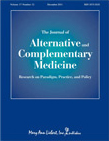
Feasibility of a nutritional supplement as treatment for pediatric bipolar spectrum disorders.
Frazier EA, Fristad MA, Arnold LE. Journal of Alternative and Complementary Medicine. 2012 Jul;18(7):678-85.
Researchers studied the impact of a micronutrient formulation co-developed† by Hardy Nutritionals® founder David Hardy on neurocognitive functioning in 14 adults with attention deficit hyperactivity disorder (ADHD) and severe mood dysregulation over an 8-week period. Significant improvement was observed in the ADHD-micronutrient group, but not the control group, across a range of verbal abilities, including verbal learning, verbal cognitive flexibility and fluency, and verbal inhibition. These neurocognitive improvements were large and consistent with improved psychiatric functioning.

Can micronutrients improve neurocognitive functioning in adults with ADHD and severe mood dysregulation? A pilot study.
Rucklidge JJ, Harrison R, Johnstone J. Journal of Alternative and Complementary Medicine. 2011 Dec;17(12):1125-31.
A 7.1-magnitude earthquake in Christchurch, New Zealand created a natural experiment for measuring the protective effects of a micronutrient formulation co-developed† by Hardy Nutritionals® founder David Hardy on mood, anxiety and stress. Prior to the earthquake, researchers had assessed mood, anxiety and stress levels in a group of 33 adults diagnosed with attention deficit hyperactivity disorder, and they chose to repeat the same measures after the earthquake. Scores showed that the 16 participants taking micronutrients were more resilient to the effects of the earthquake than the 17 individuals not taking any supplement. This effect was particularly marked for depression scores.

Post-earthquake psychological functioning in adults with attention-deficit/hyperactivity disorder: positive effects of micronutrients on resilience.
Rucklidge JJ, Blampied, NM. New Zealand Journal of Psychology. 2011;40(4):51.
The role of good nutrition for resilience in the face of stress is a topic of interest, but difficult to study. A 7.1 earthquake took place in the midst of research on a micronutrient treatment† for Attention-Deficit/Hyperactivity Disorder (ADHD), providing a unique opportunity to examine whether individuals with ADHD taking micronutrients demonstrated more emotional resilience post-earthquake than individuals with ADHD not taking micronutrients. Thirty-three adults with ADHD were assessed twice following the earthquake using a measure of depression, anxiety and stress also completed at some point pre-earthquake (baseline). Seventeen were not taking micronutrients at the time of the earthquake (control group), 16 were (micronutrient group). While there were no between-group differences one week post-quake (Time 1), at two weeks post-quake (Time 2), the micronutrient group reported significantly less anxiety and stress than the controls (effect size 0.69). These between group differences could not be explained by other variables, such as pre-earthquake measures of emotions, demographics, psychiatric status, and personal loss or damage following the earthquake. The results suggest micronutrients may increase resilience to ongoing stress and anxiety associated with a highly stressful event in individuals with ADHD and are consistent with controlled studies showing benefit of micronutrients for mental health.

Micronutrients reduce stress and anxiety following a 7.1 earthquake in adults with Attention-Deficit/Hyperactivity Disorder
Rucklidge JJ, Johnstone J, Harrison R, Boggis A. 2011. Psychiatry Research, 189:281-87.
Researchers detail an off-on-off-on trial of an 18-year-old male diagnosed with obsessive-compulsive disorder (OCD) and Asperger’s disordera who took a micronutrient formulation co-developed† by Hardy Nutritionals® founder David Hardy. The young man first underwent cognitive behavioral therapy (CBT) for one year with a modest response. Within a year thereafter, his anxiety became severe again and he began to experience major depression. After 8 weeks of using a vitamin-mineral formulation, his mood stabilized, his anxiety reduced, and his obsessions were in remission. Treatment was then discontinued for 8 weeks, during which time his obsessions, anxiety, and mood worsened. Reintroduction of the micronutrient formula again improved mood, obsession and anxiety symptoms within 8 weeks. After taking the formulation for 6 months longer, he experienced further improvements in mood and anxiety symptoms.

Successful treatment of OCD with a micronutrient formula following partial response to Cognitive Behavioral Therapy (CBT): a case study.
Rucklidge JJ. Journal of Anxiety Disorders. 2009 Aug;23(6):836-40.
Researchers describe a 12-year-old boy who was diagnosed at age 6 with bipolar disorder. His diagnosis evolved to include psychotic features, generalized anxiety disorder and obsessive-compulsive disorder. Although he was treated with psychiatric medications for 6 years, he continued to experience many debilitating mood, anxiety, and obsessive-compulsive symptoms. During treatment with a micronutrient formulation co-developed† by Hardy Nutritionals® founder David Hardy, the boy’s global functioning notably improved. He began interacting more appropriately with peers, remained calm and playful throughout most of the day, slept throughout the night, remained focused and efficient while completing schoolwork, and experienced decreased compulsions. Eventually, his hallucinations also ceased and all diagnoses fully remitted. His symptoms remained stable during a 14-month follow-up period.
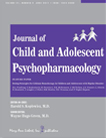
Multinutrient supplement as treatment: literature review and case report of a 12-year-old boy with bipolar disorder.
Frazier EA, Fristad MA, Arnold LE. Journal of Child and Adolescent Psychopharmacology. 2009 Aug;19(4):453-60.
Researchers treated nine unselected children with mood and behavioral problems with a micronutrient formulation co-developed† by Hardy Nutritionals® founder David Hardy. The children’s psychiatric diagnoses included attention deficit hyperactivity disorder, bipolar disorder, depression, oppositional defiant disorder, obsessive-compulsive disorder, generalized anxiety disorder, Asperger syndrome, and Prader-Willi syndrome. After a minimum of 8 weeks of micronutrient treatment, the children’s behavior improved significantly in the following areas: anxious and depressed mood, thought problems, interpersonal relationship problems, attention problems, social problems, withdrawn behavior, disruptive behavior, delinquent behavior, aggressive behavior, and self-harm behavior.

Improved mood and behavior during treatment with a mineral-vitamin supplement: an open-label case series of children.
Kaplan BJ, Fisher JE, Crawford SG, Field CJ, Kolb B. Journal of Child and Adolescent Psychopharmacology. 2004 Spring;14(1):115-22.